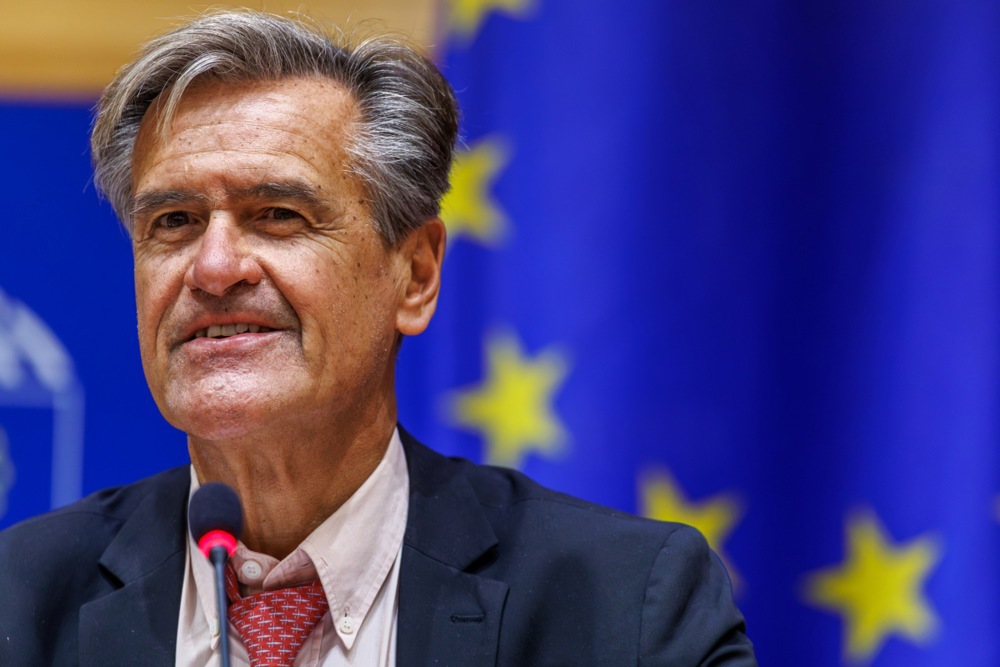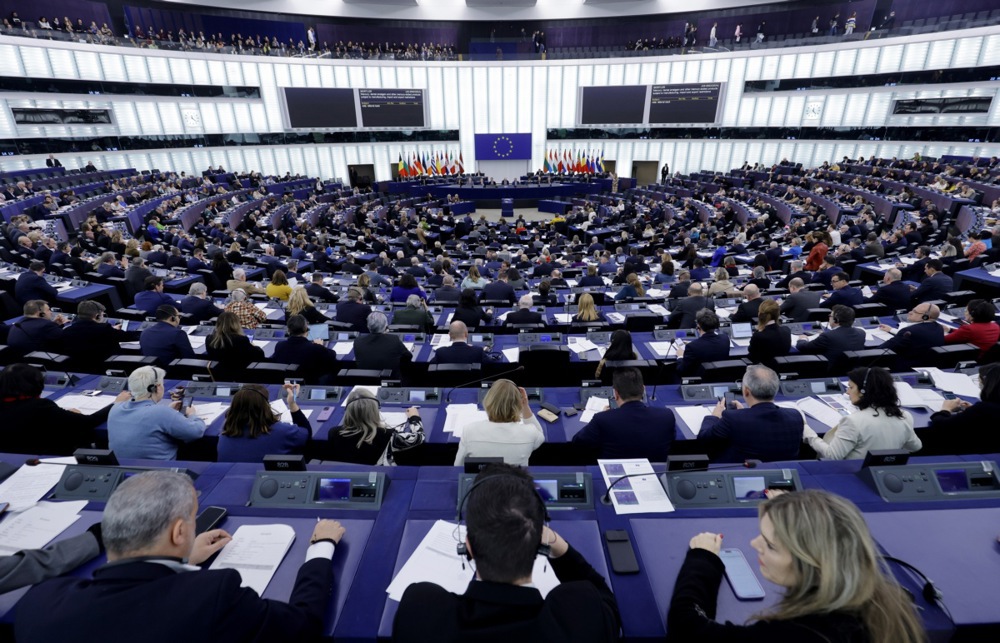The European Council has adopted three pieces of legislation designed to reform the European Union’s economic and fiscal governance framework.
Signed off on April 29, the reforms are intended to guarantee stable and sustainable public finances while encouraging inclusive and continuous growth in all Member States.
Hans Dewachter, Chief Economist with the KBC group and former macroeconomics professor at the University of Leuven, told Brussels Signal that the reforms were a return to a “period of fiscal discipline”.
According to Dewachter, the new rules “make macroeconomic sense but the impact is still unknown, the proof of the pudding will be in the eating”.
He said he expected that this year and next would usher in “significant government cutbacks”, and that budgetary policy will become increasingly embedded into broader macroeconomic policy.
“Budgetary policy will have to be congruent with the sustainability analysis from the European Commission, the Commission will be the first in line to determine if a policy is structurally sustainable,” he said.
Asked if this could be seen then as a power grab by Brussels, Dewachter said that would be an overstatement, describing the guidelines as “prescriptive”.
“The Commission will now make the first technical report that Member States must comply with to avoid penalties or procedures,” he explained.
“The rules are more pronounced than in the past.”
After decades of spending beyond its means, France must soon show how it will avoid a budget crunch that is putting its credit ratings at risk and could even lead to the downfall of President Emmanuel Macron’s government. https://t.co/TtjcL4kEIr
— Brussels Signal (@brusselssignal) April 10, 2024
If the fiscal rules are properly implemented and adhered to, Dewachter predicted that they should help lead the EU towards greener fiscal pastures.
He argued that the budget deficits and spending rules are “analytically sufficient” and should put medium-term debt on a downward path.
There are possible exceptions. For example, when markets lose confidence in highly indebted countries and short-term interest rates spike, the new rules would not necessarily apply.
Under the regulations, EU countries will be required to strive for a budget deficit of a maximum of 3 per cent of GDP in four to seven years, depending on the length of the national legislature.
The European Union’s budget priorities are shifting rapidly away from solar cells to bullets as the Ukraine conflict replaces the stalled Green Deal in leaders’ concerns. https://t.co/vkHwJGHRAR
— Brussels Signal (@brusselssignal) February 1, 2024
The Council’s adoption of the regulations followed approval from the European Parliament on April 23 of new fiscal reforms introducing a minimum reduction of average national deficit and debt.
The new fiscal rules entail a commitment to a multi-year public net-expenditure path and outline investments and reforms addressing challenges identified in the European Semester, particularly in response to country-specific recommendations.
In preparation, the EC will provide a “reference trajectory” for net expenditure.
Member States will have to reduce what is termed their “excessive debt” in relation to their total national debt, with the overall aim being to get individual countries to make greater efforts to cut high levels of debt.
Nations with such excessive debt will be required to reduce it on average by 1 per cent per year if debt is above 90 per cent of GDP and by 0.5 per cent per year on average if it is between 60 per cent and 90 per cent.
If a Member State’s deficit is above 3 per cent of GDP, it would have to be cut during periods of growth to reach 1.5 per cent and to build a spending buffer for future difficult economic conditions.
Several measures have been introduced to “give breathing space” to Member States having issues with their budgets.
Those with significant debt or deficits may ask the EC to hold a debate process before it issues recommendations on the direction of expenditure, at the request of MEPs.
By September 2024, the first national plans defining spending, reforms and investments should be established.
An important moment for the EU economy as @Europarl_EN backs the reform of our fiscal rules. A compromise, with worthwhile improvements on the status quo: more space for public investment, credible debt reduction, greater national ownership. A good step forward. pic.twitter.com/J3pdhDp6uy
— Paolo Gentiloni (@PaoloGentiloni) April 23, 2024
While negotiating the legislation, MEPs made it more difficult for the EC to place a Member State under an excessive deficit procedure if essential investments were ongoing.
They also made it so there will be increased incentives for investment, with national spending on the co-financing of EU-funded initiatives not set to count towards a government’s total spending estimate.
MEPs significantly increased the role of national independent fiscal institutions, which are charged with assessing the viability of their governments’ budgets and fiscal projections.
An important element will be how bigger Member States with large debts, such as France and Italy, are dealt with under the reforms. Since they wield more power in Europe, their treatment will say a lot about the credibility of the system.
According to Dewachter, the fiscal reforms are rules-based, with some exceptions. There is room for negotiation and a bargaining margin for countries if they work on reforms and investments.
“The question will be if that will suffice but, again, that will become clear in practice.”
Larger countries have always had more leverage to negotiate but that will be less easy under the tighter rules.
Govts in France and Italy still have elevated deficits and will soon land in the EU's Excessive Deficit Procedure, requiring them to hit a deficit of 3% of GDP within 4 years. Both have elections sooner than that. But the credibility of the EU's new fiscal rules depends on this. pic.twitter.com/qsqiogrdiw
— Daniel Kral (@DanielKral1) April 23, 2024
“The new legislation will significantly improve the existing framework and provide effective and applicable rules for all EU countries,” said Vincent Van Peteghem, Deputy Prime Minister and minister of finance of Belgium.
“They will safeguard balanced and sustainable public finances, increase the focus on structural reforms and investments to spur growth and job creation throughout the EU. The time is now for a swift implementation.”
Still, despite Belgium holding the presidency of the EU and leading the negotiations over the legislation, it stood alone in abstaining from endorsing effective co-ordination of economic policies and multilateral budgetary surveillance.
The 26 other Member States supported that part of the legislation but the Government in Belgium is split on the issue as it has one of the worst-performing budgets in the EU.
MEP Johan Van Overtveldt, a member of the European Conservatives and Reformists (ECR) and chair of the Committee on Budgets in the EP, was not overly impressed with the new fiscal rules.
He told Belgian VRTNWS recently he felt they were too soft. He doubted whether the EC had enough of a “big stick” to meaningfully punish Member States if they did not follow them.
“One must be able to intervene in a credible and effective way if a budget is derailed, as is very clearly the case today in my home base, Belgium,” he said.
Despite these reservations, Van Overtveldt and his N-VA colleagues voted in favour of the new fiscal directive.
The most stringent opposition came from the left-wing parties including the European Green Party and the Left-Group together with unions and other organisations such as environmental NGOs
Public investment is crucial to create a competitive Europe & finance our green future…but Europe ties its own hands with new #fiscalrules.
Disappointed that most MEPs chose to support returning to budget cuts and #austerity ? pic.twitter.com/II5TmGBFAe
— Ciarán Cuffe (@CiaranCuffe) April 23, 2024





